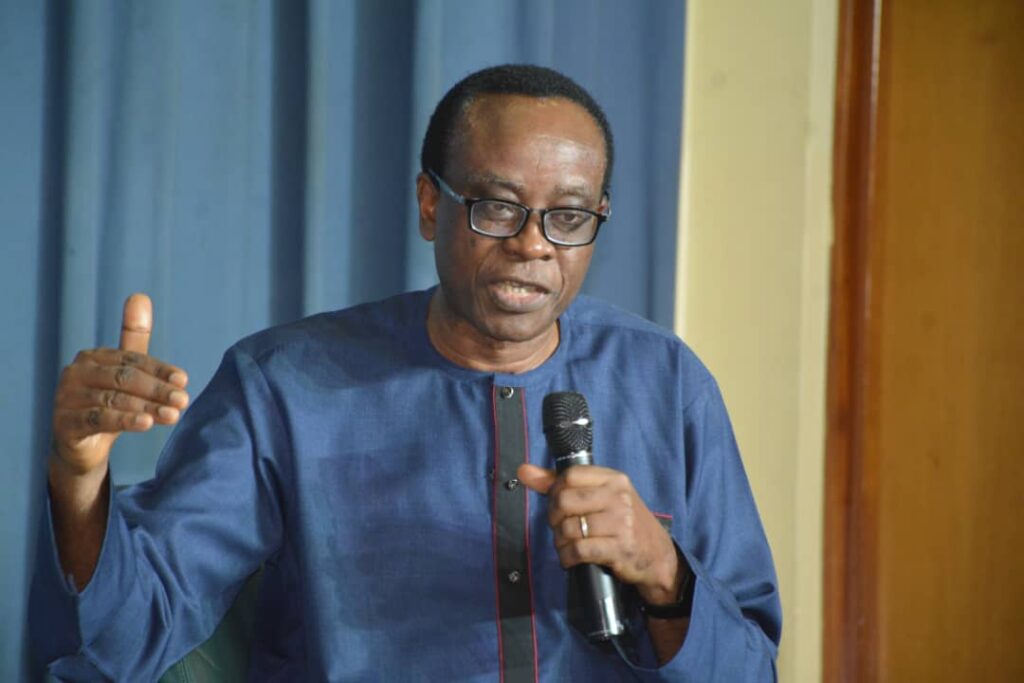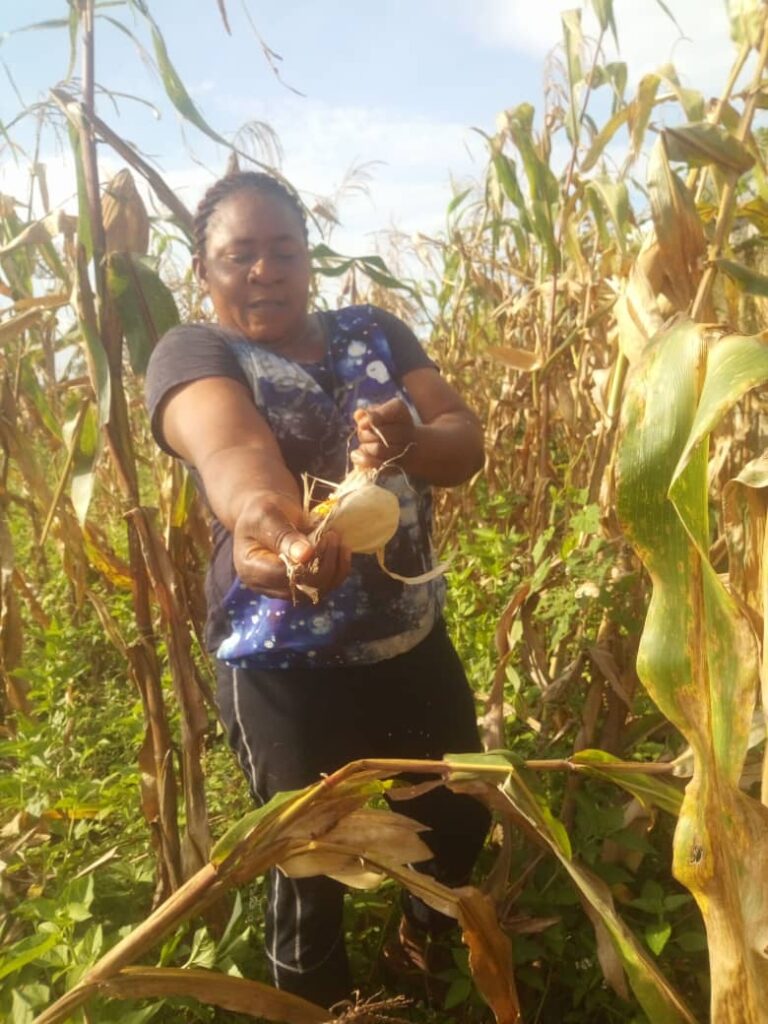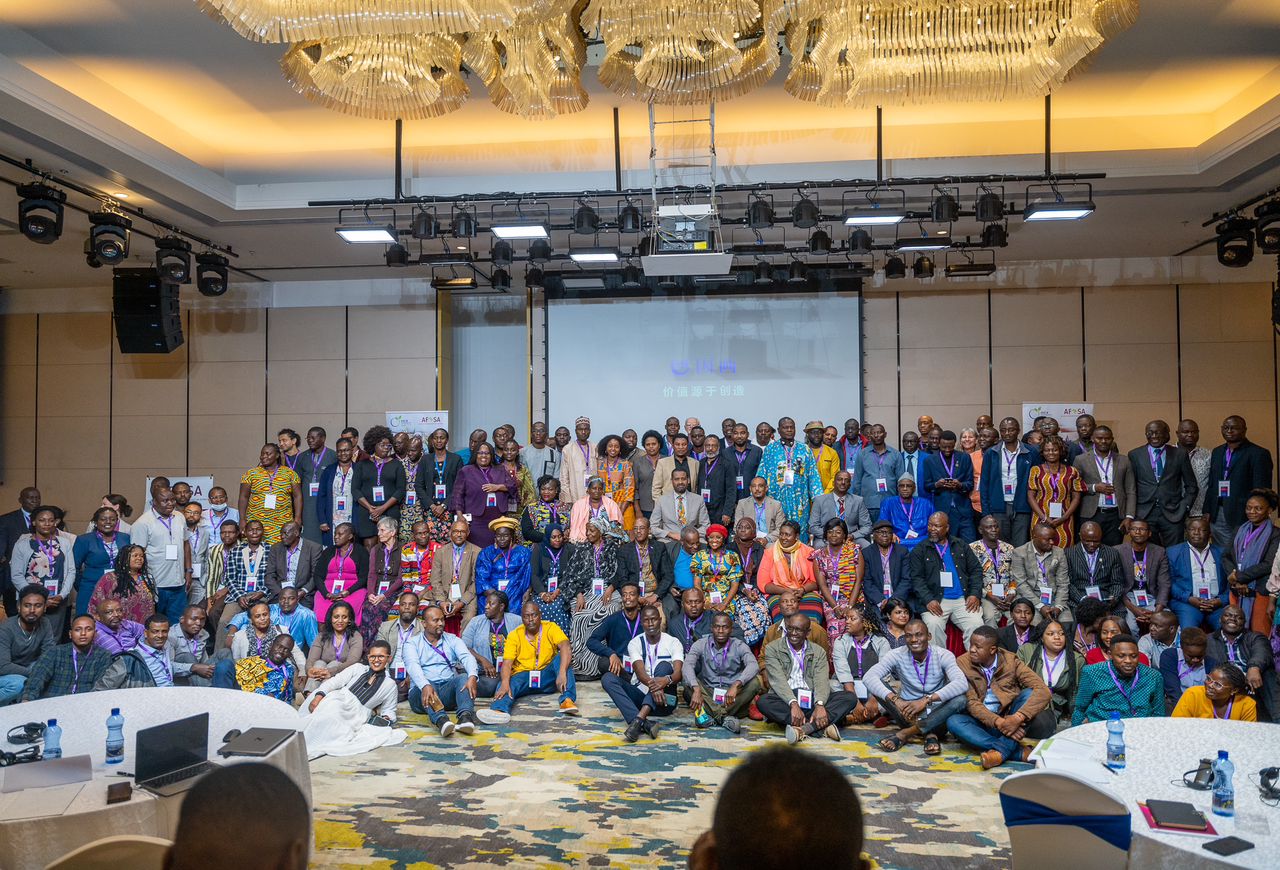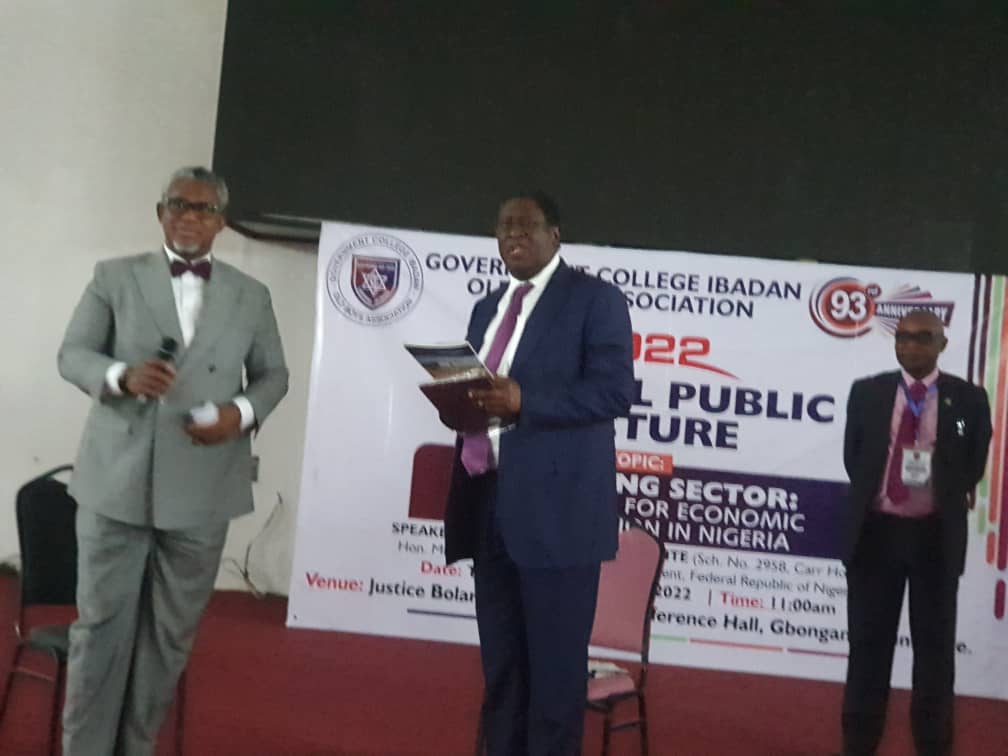It was a most unifying gathering, when the continent’s most prominent civil society organization(CSO) movement, representing 200 million small-scale farmers, fisher-folk, pastoralists, consumers, religious groups, and indigenous people, the Alliance for Food Sovereignty in Africa (AFSA) hosted stakeholders from 33 African countries, including Nigeria, in Addis Ababa, Ethiopia to adopt agroecology, as the solution to climate adaptation and resilience for Africa, EarthNews Editor, Ruth Tene Natsa was there and captured it for Nigeria.
The three days conference which began September 19 to 21, 2022 themed ‘Africa’s Climate Emergency: A Call for Adaptation and Resilience’ ended with a call to the 27th Edition of the Conference of the Parties, also known as ‘COP27’ to recognize agroecology for adaptation, by prioritizing the system to transform the agri-food system.
The Coalition further called on COP 27 to put small-scale farmers at the centre of adaptation, and focus climate financing on sustainable food systems, by providing direct climate finance to agroecology.
The group stated that Africa was suffering the effects of climate emergency every day as a result of rising temperatures, floods, storms, droughts, and depleted lands which impact small-scale food producers across Africa first and are forced to adapt, with negligible support or access to climate finance.
They were of the view that Africa has great potential, rich cultural diversity, natural resources, and creative young people, yet its agriculture is plagued by under-investment and policy gaps that prevent access to productive capital and land.
“We need a radical transition away from industrial agriculture, corporate monopolies, and false climate solutions – toward food sovereignty and agroecology”. Adding that, locals use agroecology to steward their land sustainably, produce nourishing food that celebrates cultural heritage, and strengthen local markets and economies.
“Most importantly, by embedding diversity and resilience, agroecology provides the ability to absorb carbon and adapt to the existential threat of climate change – as the IPCC acknowledges. Africa can lead the world in the transition to sustainable food systems through agroecology” they said.
AFSA General Coordinator, Million Belay(Ph.D.) said the purpose of the high-level engagement was to bring consensus among African Actors on climate, such as governments, CSOs, Academia, religious leaders, and media among others.

He said that it was important to bring this issue to COP 27 because that is a place where agriculture and adaptation are going to be discussed as it is high on the agenda.
“In our engagement with African group of negotiators we could see that they do not believe or trust on Agroecology, so we just want to create a consensus amongst the CSOs to be transmitted to our various governments”
Dr. Balley said the consensus was not only aimed at COP 27 but on the way and beyond that. “What we shall do before COP 27, what we shall do at COP 27 and what we shall do post COP 27, so it is to refine our agenda at COP 27. To collaborate and unite our agenda for Africa. So by bringing all these actors together, we are creating a broad base for advocacy to issues related to the subject matter to discuss, deliberate, and advocate”.
“There is so much confusion about what kind of agriculture Africa should have, towards adapting to the climate crises that are coming, some of us advocate for agroecology, some say it is climate-smart agriculture while others say it is the nature-based solution, so there is a lot of confusion, lots of agendas which emanate from outsiders”.
“Africa traditionally has diverse foods, but increasingly, we are losing our diversity mainly because of the kinds of policies that we are promoting. So we are trying to propose a policy both at the country and continental level, which will be coherent amongst us all, as often we have lots of policies negating against each other while also bringing food access from all over the world,” he said
Also speaking, AFSA Programme Coordinator, Bridget Mugambe recalls that the AFSA membership in 2018 decided to start a campaign to make agroecology a major policy solution to the climate catastrophe that is adversely affecting Africans’ social, economic, and ecological well-being.

Bridget Mugambe
She said “In Africa, the impact of the climate crisis is intense and is felt primarily on farming, food production, and food systems. Women food producers are often the first to suffer from these impacts.
She added that current African policy solutions placed further pressure on small-scale food producers to participate in industrial agricultural programs such as climate-smart agriculture, GMO seeds, and chemical inputs derived from fossil fuels.
Clearly, the goal of limiting global temperature rise to 1.5C above pre-industrial levels is not going to be achieved by more industrialization, she said.
Meanwhile in Nigeria, the Director, of Health of Mother Earth Foundation (HOMEF), Nigeria, Dr. Nnimmo Bassey is optimistic that agroecology is a vital solution to climate change both as an adaptation strategy and also as a mitigation action.

“This is so because agroecology leans on the inherent resilience of Nature. It works in sync with the cycles of Nature rather than using the basically disruptive approaches of industrial agriculture. Think of it this way: agroecology promotes mixed cropping with indigenous/natural varieties, is not a monoculture, does not depend on artificial inputs, and thus ensures the health of biodiversity. Climate adaptation and resilience are strengthened by biodiversity. Moreover, agroecology builds healthy soils and such soils are excellent carbon sinks. So, agroecology helps on both counts of adaptation and mitigation.
He maintains that ‘Agroecology is the natural way of farming for Nigerian and indeed African farmers. “Nigerians want safe, healthy, and nutritious foods. They are averse to monocultures which are basically colonial and destructive. They want to harvest multiple crops on their farm lots and gardens. All the farmers want is more investment in agroecology, more support, and platforms for sharing knowledge with farmers in neighbouring communities and countries.
‘Nigerians know that industrial agriculture basically aims at the proverbial value-chain, sees food as little more than a commodity, and focuses on meeting the needs of industries and not necessarily the food needs of the people. Yes, from our continuous interactions with our farmers, they are ready not just to keep to agroecology but to champion the cause.
Meanwhile speaking on his stance against the promotion of Genetically Modified (GM) Foods, Dr Bassey says “Our advocacy against GMOs is a multifaceted struggle. We are demanding the respect of our agricultural and food systems. We advocate support for our farmers including the provision of extension services, infrastructure, and other supports.
“GMOs do not deliver on the mythical promises of feeding the increasing population because they do not necessarily yield more than natural varieties. They aren’t healthier, rather pose serious health risks to our population. We should also add that it is impossible to label GM foods in our socio-cultural contexts. If you cannot label GM such as Akara and Garri, it means that we are denied our right to choose whether to eat GMOs or not”
“Promoters of GMOs are unable or unwilling to even explain to farmers that they are being given genetically engineered seeds to cultivate. This is both illegal and unethical.”
Similarly, Mrs. Nnenna Mercy Chukwuma, a farmer and secretary, Small Scale Women Farmers Organisation in Nigeria (SWOFON), who says she has partaken in agroecology training and seen its advantages says “the practice of agroecology is both eco (environmental) and health-friendly”.

In her words “It is a practice that has to do with nature and it is cheap because everything is natural. You can actually compost manure and mulch it, thus saving costs on fertilisers and other chemicals. Another advantage of agroecology is that the materials you need for them are usually readily available around your home, so it is good and nice.”
Mrs. Chukwuma, who is both into poultry and crop farming maintains that “Agroecology is a healthier and more nutritious choice because it is chemical free. She adds that herbicides are not friendly, but with natural or organically grown foods you find the taste of the crops are better and sweeter than those organic fertilisers”
She however noted that agroecology is not without its challenges because of the nation’s increasing, population, rural to urban migration, and decreasing land sizes. “With Agroecology you cannot use machinery or fertilisers and this is definitely a disadvantage to the rising population, so it reduces production but improves quality”
“Prior to now, organic farms sold more because family and land sizes were smaller than what obtains today but now as a result of urbanisation and migration there are fewer farmers and more consumers, so it is more difficult feeding the rising population using the same methods, as such farmers tend to want to maximize the little farmlands they have because of rising demands”.
She added that Organic farming is the way out of the present crises facing the world. “We have practiced using fertilisers, as well as the use of manure (animal dung) compost, and discovered their qualities are different, so we need to go back to our roots”.
“Prior to now trees stood tall to absorb the chemicals in the ozone layer, but now it is not the same and it is important that we embrace agroecology, plant trees around, use mulching to reduce grasses, and do cover crops to reduce the gases being emitted by our industries and other technologies and also reduces diseases such as we have today”
While adding that farmers must grow above looking at quantity to quality. She said notes that long usage of chemicals on the land devalues and depletes its nutrients and the best way to restore the land is to return to organic farming (using natural manure) as our forebears did, as we all can see they lived healthier and better lives than what we have now.”
A medical laboratory scientist, Musa Wazani opined that agroecology can help protect, restore and improve agriculture and food systems in the face of climate shocks and stressors, adding that agroecology is a holistic approach that seeks to reconcile agriculture and local communities with natural processes for the common benefit of nature and livelihoods.

“It is a known fact that diverse, well-integrated agroecological systems can promote greater carbon sequestration, increase the resilience of livelihoods and provide, climate change mitigation and adaptation solutions. Agroecological farming helps to trap and store carbon in the soil. Where conventional agriculture seeks to streamline, it embraces complexity. Where conventional agriculture aims to eliminate biodiversity, agroecology depends on diversity, and builds upon it” he said.
For the Lab Scientist who says droughts, storms and the recent floods that destroy farm products can be mitigated by employing the practice of agroecology, he is optimistic that agroecology practice ensures food security, create healthy ecosystem environment, in addition to trapping carbon dioxide which cushion the effect of climate change, through improving water circle and cultivation of cover crops that help to control erosion.
Several studies have shown that agroecology mitigates climate change one of which was conducted and published by the UN Food and Agriculture Organisation (FAO), he said
He is optimistic that the practice of agroecology can be achieved if African Leaders are sensitized and develop an interest on the impact of climate change and mobilize resources for research on relatively cost-effective Farm instruments and on the species of plant and crops that suit a particular climate condition within the continent.
To achieve the above, Wazani supports that the “Government of states should fund researches on types of crop and plant species needed, in addition to suitable mechanization techniques to start the practice of agroecology, that are best suited to their environment and fund the process of executing the research findings”
“The success stories should be presented on several of the Africa Union platforms, to serve as a model worthy of emulation globally,” he said






